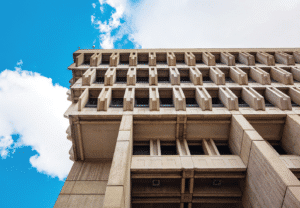Well, you have to hand it to Boston Mayor Michelle Wu.
For she’s managed to do something that even Boston Mayors Thomas M. Menino and Marty Walsh never came close to doing.
Wu has united a wide-ranging coalition of wheeling and dealing developers and neighborhood activists.
United, that is, in opposition to her proposed tax rate hike, which Wu is closing in on State House approval for as soon as Monday after months of setbacks and negotiations.
And, along the way, Wu also managed to tick off some powerful, buttoned-down chamber-of-commerce types, while she was at it.
Tax Deal Headed for Approval
Now it’s not exactly news at this point that here’s no love lost at this point between Boston Mayor Michelle Wu and Boston’s real estate industry, especially among developers.
The city faces a looming revenue gap of more than $1 billion over the next few years as office tower values crumble with the persistence of remote work.
And the mayor’s plans to close some of that gap by hiking tax rates on commercial properties in Boston – effectively attempting to squeeze more money out of half-empty office and retail buildings downtown – has gone over like a lead balloon.
It’s one of a number of areas where Wu has been battling with real estate investors and developers, including over the mayor’s decision to heap new and costly affordable housing and energy mandates onto the industry at a time when most new housing projects are stalled across the city.
But over the last few months, what had been a fight between Wu and developers has started to spread to the wider business community, with executives concerned about further damaged to downtown Boston, the headquarters of the region’s economy.
That shift could be seen in the emergence of Jim Rooney, head of the Greater Boston Chamber of Commerce, as a vocal critic of her tax plan.
Rooney and the chamber, along with large-developer trade group NAIOP Massachusetts, have since reluctantly agreed to a somewhat scaled back version of Wu’s original tax plan.
But not so with the Greater Boston Real Estate Board, another influential player, which abstained from taking part in the talks with Wu brokered by Senate President Karen Spilka, as well as the Small Property Owners Association.
Activist ‘Coalition’ Surfaces
Now add to that mix rising discontent among leaders of some neighborhood groups as well, some of whom likely backed Wu when she glided into the mayor’s office in 2021 with a margin of victory of nearly 30 percentage points.
One growing flashpoint? Boston homeowners are facing a significant increase in their tax bills, even if Wu succeeds in winning approval at the State House – where she has been repeatedly blocked – for her plan to jack up commercial property tax rates.
Compounding matters, Wu has refused to consider any cuts to the city budget, with spending on track to rise 8 percent, claiming variously that there is nothing she can cut, or that she is hemmed in by some of the union contracts she has negotiated.
A group that is calling itself a “grassroots coalition” has been reaching out to members of the Boston media and others over the past two weeks to express “strong opposition to recent proposals by Mayor Wu and the Boston City Council.”
Of the six concerns listed by the group, the top three deal with Wu’s proposed tax increase, “wasteful spending,” and the hiring of 450 city workers during the mayor’s first term.
“The coalition emphasizes the necessity for the city to prioritize budget cuts and fiscal responsibility,” the newly launched group noted in press release.
Stadium, Hospital Are Flashpoints
It’s not yet clear just how much pull the group has with voters, but its concerns extend beyond the immediate issue of the pending tax increase and city spending.
The group says it is opposed to Wu’s plan to tear down White Stadium in Franklin Park and transform the site into the home base for a women’s professional soccer venue.
There is also anger over “recent development decisions that have lacked adequate community engagement and where neighbors’ voices were ignored or silenced” – as well over long-standing tax incentive deals with “billionaire developers.”

Scott Van Voorhis
The contact for the new coalition is Tanna Preston, a Mattapan resident who has voiced concerns about plans to transform Franklin Park’s Lemuel Shattuck Hospital into a giant drug and mental illness treatment campus.
All of this should be of great concern to Boston’s mayor, who is up for reelection next year.
Certainly Menino and Walsh had their critics, with frustration among neighborhood activists over what was then the Boston Redevelopment Authority a common theme during the tenure of both mayors.
Yet Menino and Walsh managed to forge decent relationships with the business community while also assiduously tending to their core supporters in the neighborhoods.
Wu, by contrast, has clearly gone in a different direction.
And it’s hard to see how it’s a good one, either for the political winds the mayor sails or for the city that she governs.
Scott Van Voorhis is Banker & Tradesman’s columnist and publisher of the Contrarian Boston newsletter; opinions expressed are his own. He may be reached at sbvanvoorhis@hotmail.com.






